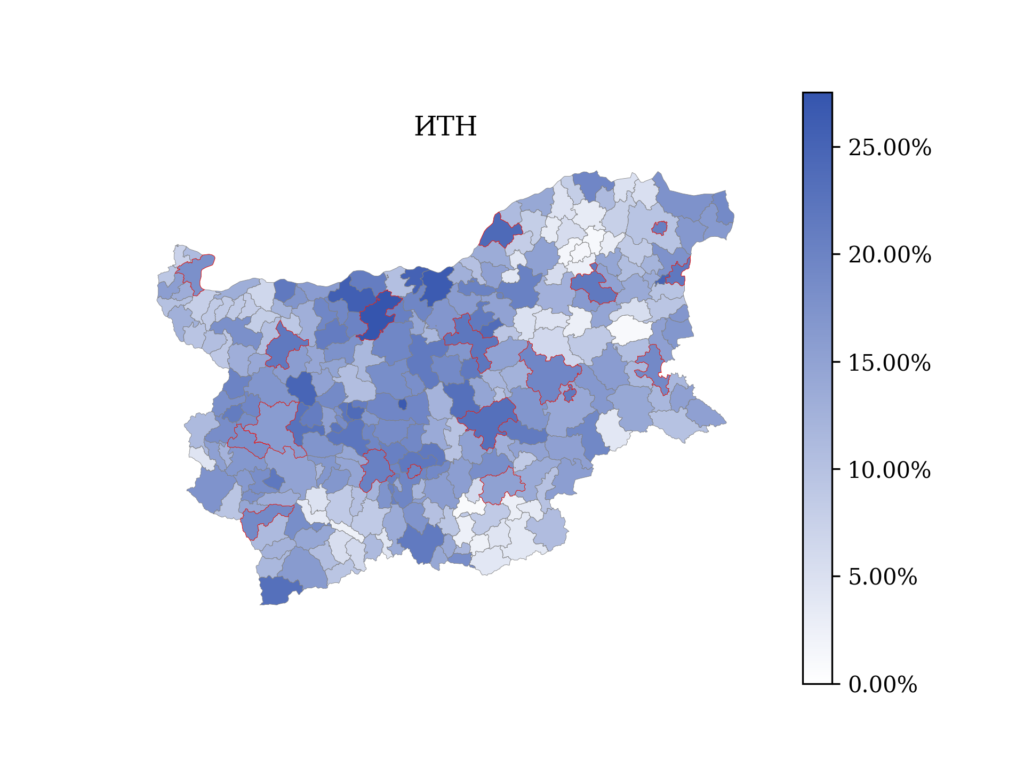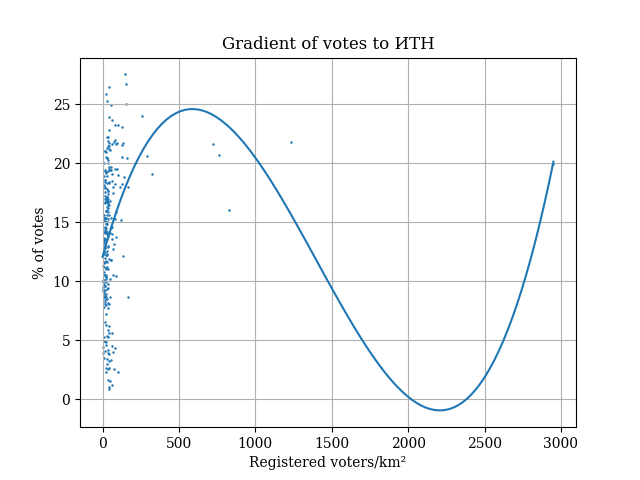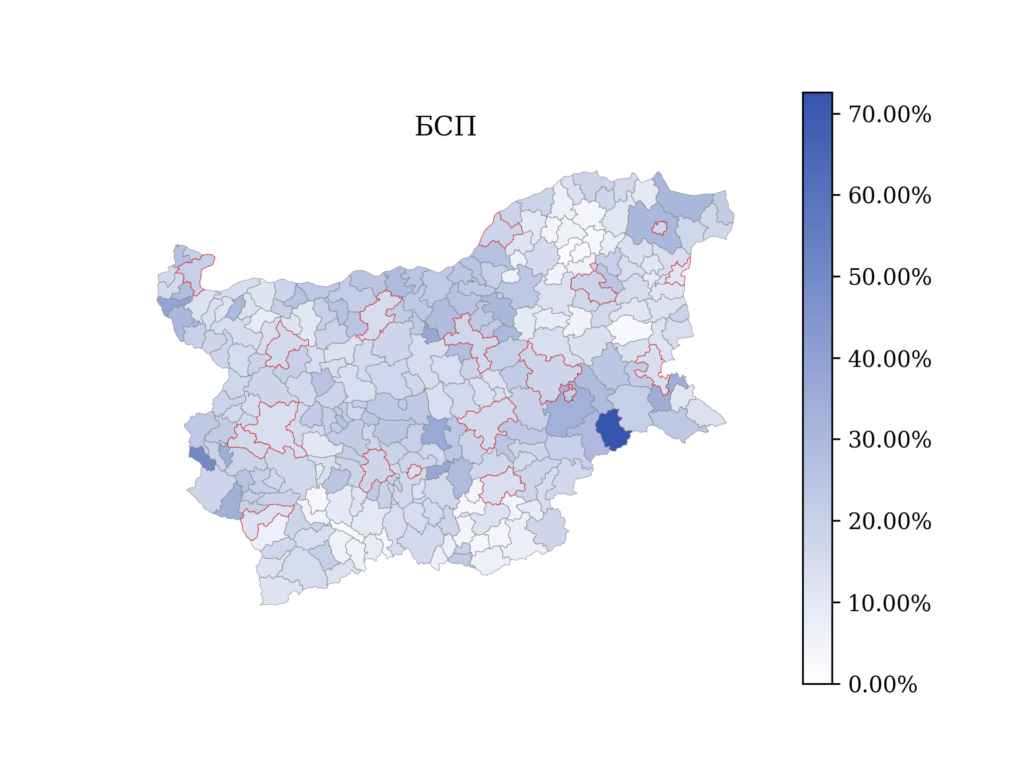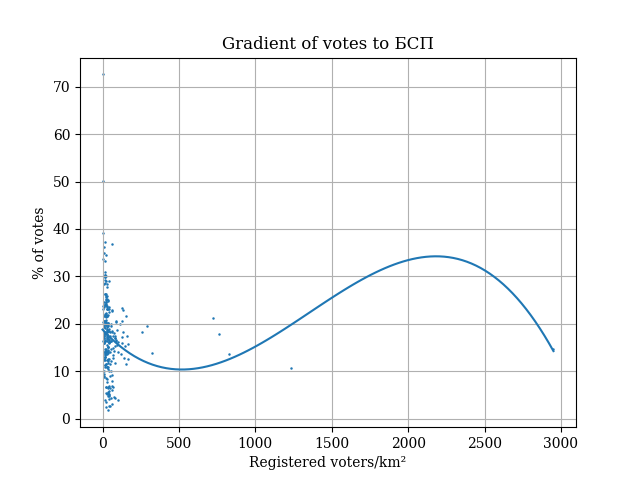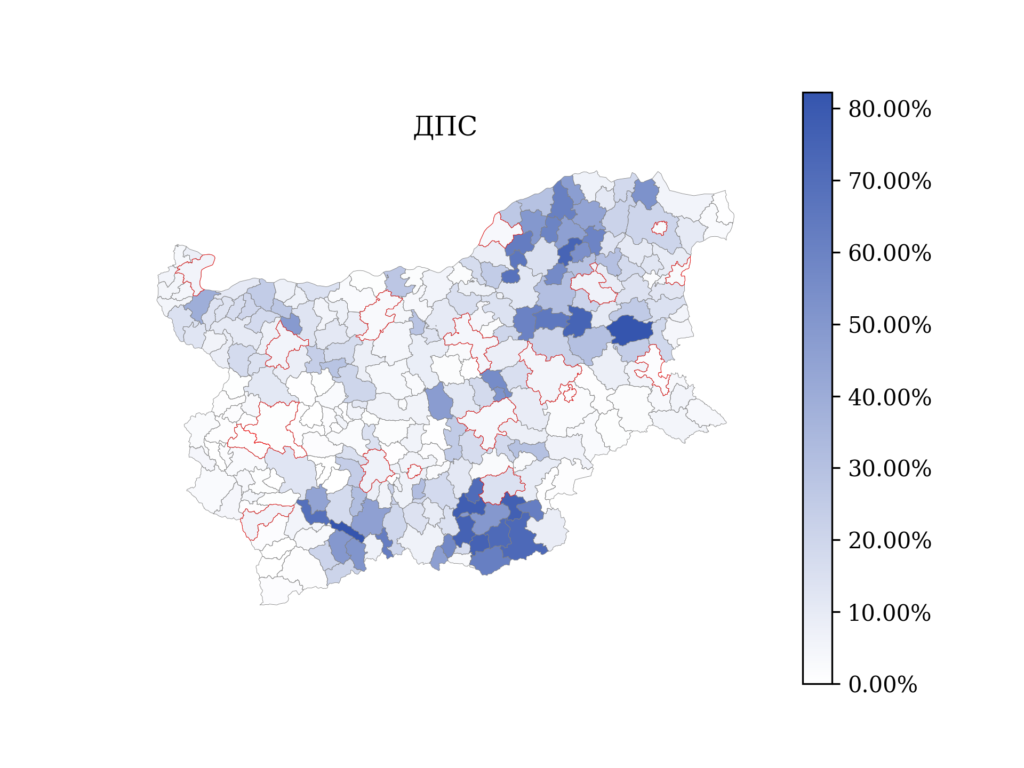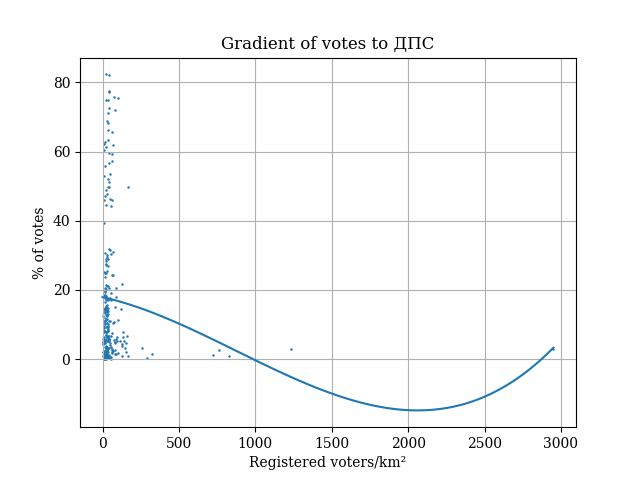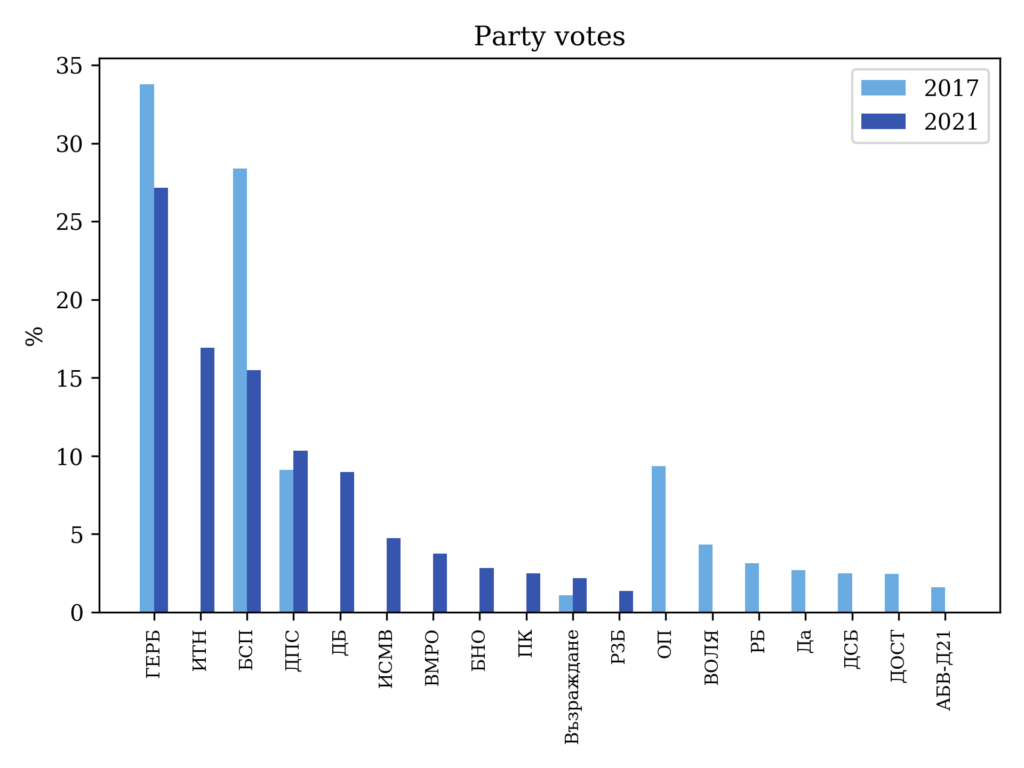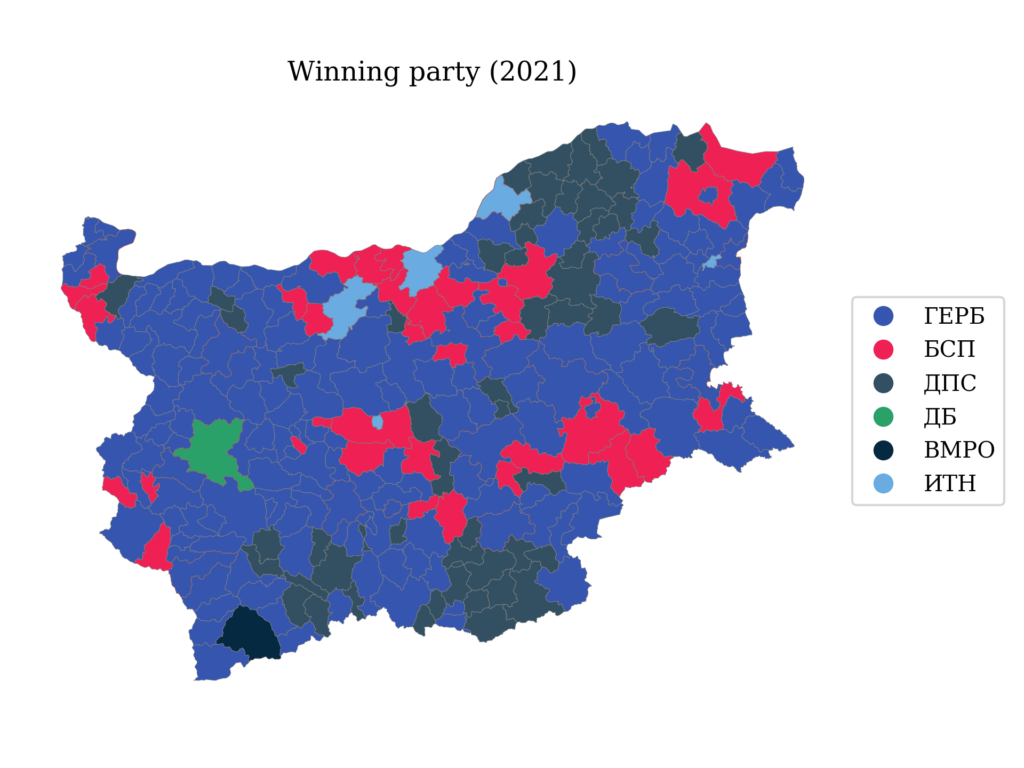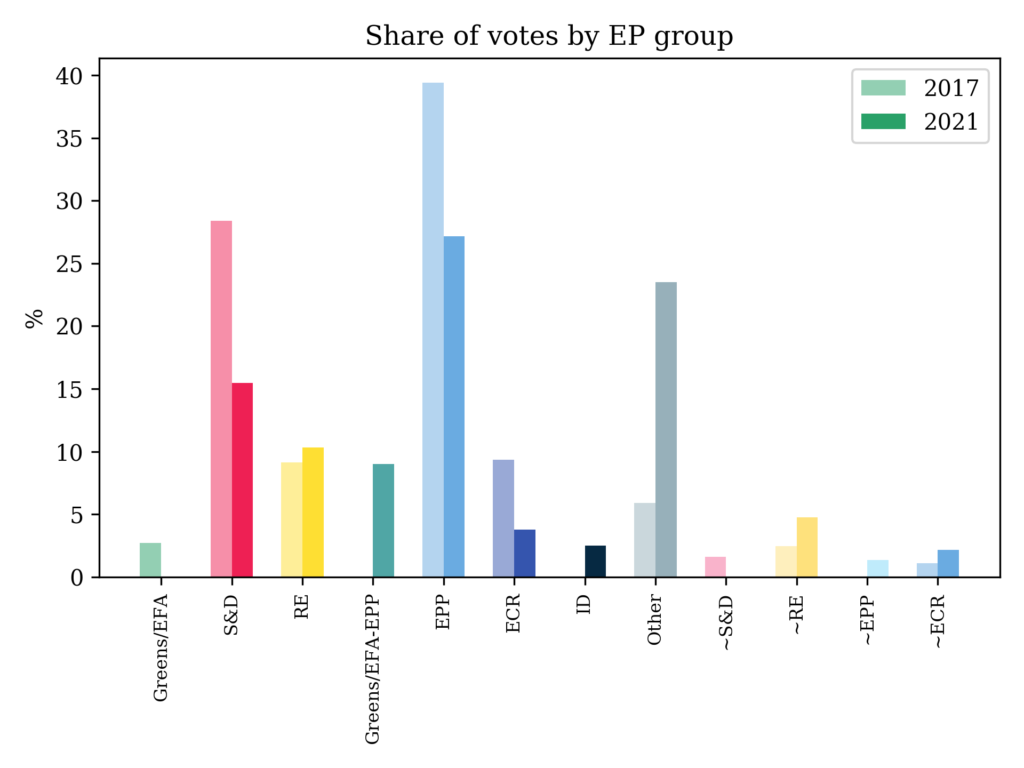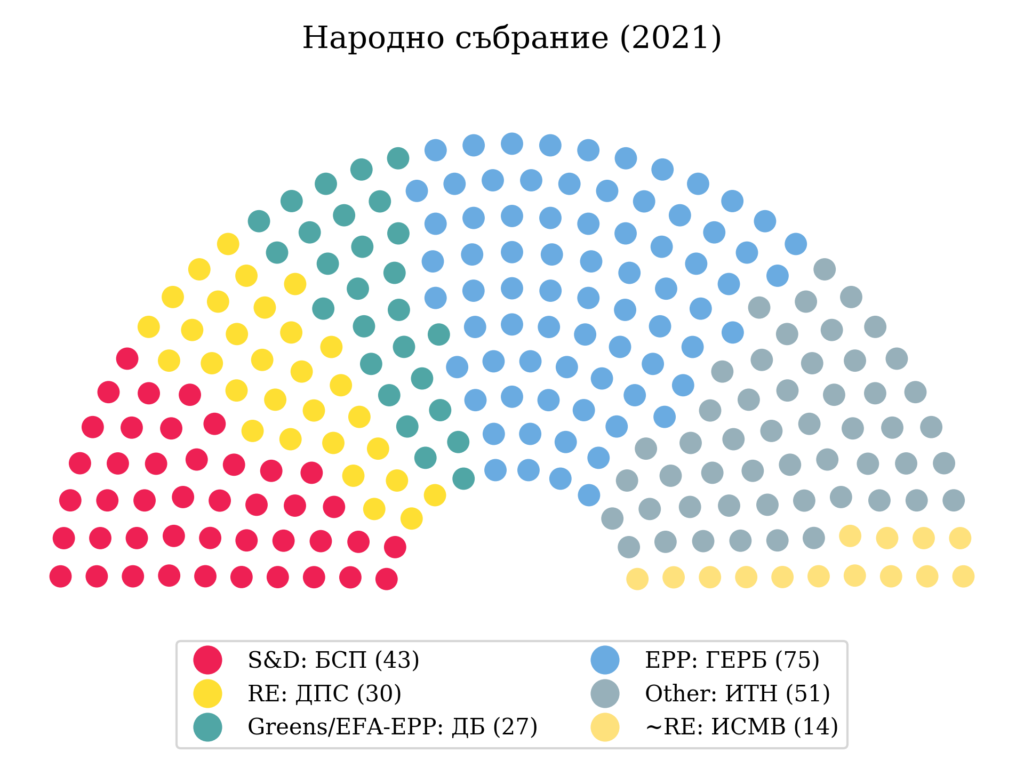Parliamentary Election in Bulgaria, 4 April 2021

Dobrin Kanev
Associate Professor, New Bulgarian Université (Sofia)Issue
Issue #1Auteurs
Dobrin Kanev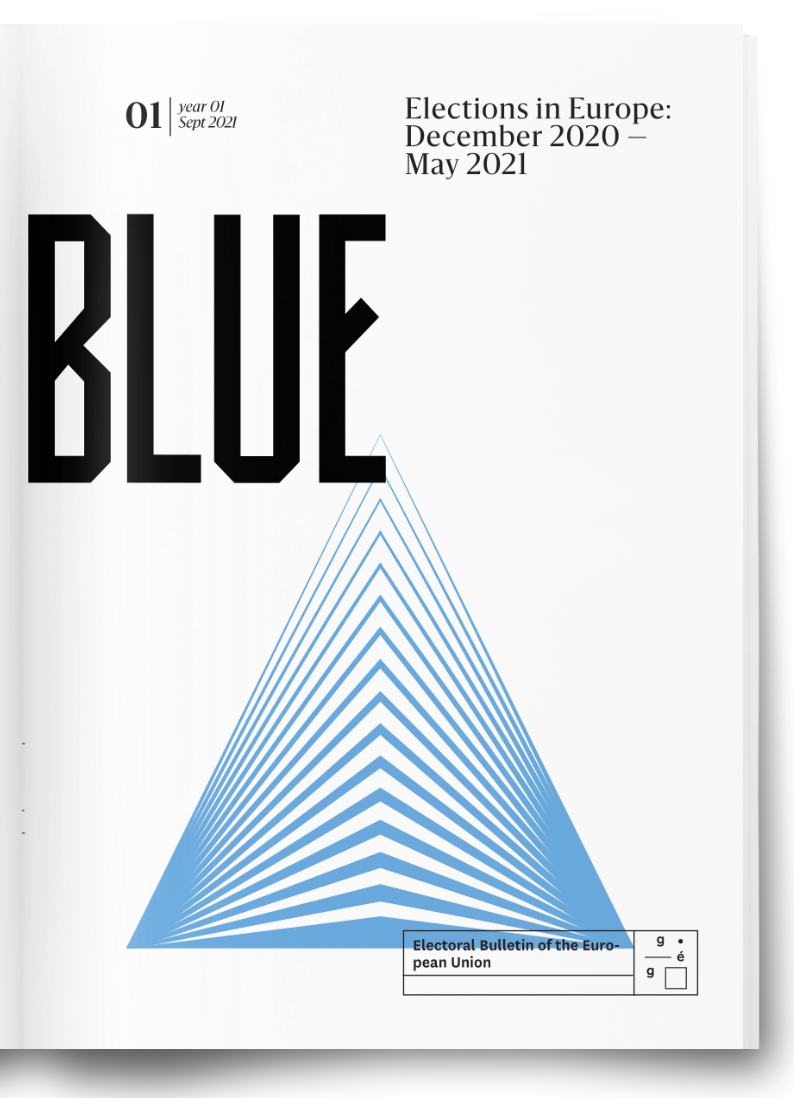
21x29,7cm - 102 pages Issue #1, September 2021 24,00€
Elections in Europe: December 2020 — May 2021
On April 4, 2021, the eleventh parliamentary elections since the beginning of democratization took place in Bulgaria. 6,789 million officially registered voters were asked to elect candidates from 30 parties and coalitions for the 45th National Assembly. The elections were conducted according the proportional representation system with a single preference option and four percentage threshold.
Context
The context of the elections was marked by some important specifics.
The first one was that they were held in the middle of the third wave of the Covid-19 pandemic, which left its marks on many aspects of the electoral process. Bulgaria was one of the most affected countries, especially in terms of mortality; the vaccination process was slow; the government policy was contradictory and oriented towards electoral goals. Nevertheless, generally, the situation worked in favor of the government. The anxiety among the citizens fueled the attitudes for preserving the status quo. In addition, the state of emergency allowed the prime minister to spend during the election campaign significant public funds with minimal scrutiny. The pandemic has negatively affected parties with older electorate as far as many older people did not go out to vote amid their concerns to be infected. For example, according an Alpha research survey 25% of Bulgarian Socialist Party (BSP, S&D) supporters expressed strong concern, compared to an average of 10% nationwide (Alpha Research, 2021).
Unlike the parliamentary and extra-parliamentary opposition, the ruling parties commanded significant financial and organizational resources. The report of the OSCE observers concluded that “massive use of state resources gave the ruling party a significant advantage”. The ruling party Citizens for the European Development of Bulgaria (GERB, EPP) and its coalition partners could also count on exceptional media comfort, noted in the mentioned report as “lack of editorial diversity”.The next important specific was related to the effect of the mass protests in the summer and autumn of last year. These lasted more than three months, expressing the civil dissatisfaction with the model of illiberal democracy established by GERB in the last decade: a model characterized by the tendency of merging the ruling party with the state, damaged rule of law, neutralization of the independent judiciary, control over the media, pressure on the opposition. The economic and social effects of this model were visible in the fact that Bulgaria remained the poorest country, the country with the lowest average salary, the highest level of inequality (DG EMPL, 2020), and the highest level of corruption in the EU (Transparency International, 2020). The protesters demanded the resignation of Prime Minister Borissov (GERB) and Chief Prosecutor Geshev. Both of them ignored these demands, did not resign and eventually survived until the protests subsided. In the elections, however, the protests took a kind of revenge. The anti-government attitudes expressed in them proved to be stronger than all the advantages the ruling parties had.
Turnout
One of the substantial electoral features, which was hard to predict before these elections, was the turnout. Most of the observers predicted turnout far below 50 percent (in absolute numbers around 2,5 million votes) because of the fears of infection, the absence of postal voting, and the concentration of the vote in only one day.
Surprisingly, this forecast was refuted, with more than 3,334 million or more than the half (50.61%) of the voters participating in the elections. It is not a high proportion, but under the given circumstances percentage like this means a relatively high turnout. At least it is comparable to the last elections held in normal situations: 51.33% in 2013; 48.66% in 2014; 54.07% in 2017. This higher than expected turnout is largely due to a new phenomenon – mobilization of young voters. According to exit polls, if in 2017 the share of voters between 18 and 30 years old was 14.9%, in 2021 it was 18.2%.
Party results
The voters sent in parliament six political parties/coalitions (see “data” panel). The number is relatively high – higher than the average value of 5.18 parliamentary parties since 1990, and ranking third after the eight parties in parliament in 2014, and the seven in 2005.
Three of the parties were new elected. Together they won 31.83% of the votes, occupying 38.33% of the seats in parliament (see “data” panel). This situation is nothing new in the history of the Bulgarian party system. It has been marked by frequent turns, abrupt changes in the preferences of the voters, sudden switching of voters to newly formed parties. At the beginning of the millennium the disappointment with the ‘old’ parties grew sharply. The first to make use of it was the National Movement Simeon II (NDSV) which won in 2001 with ease almost 2 million votes and half of the seats in parliament. The year 2009 saw its repetition, though on a smaller scale. GERB, founded a couple of years earlier, received almost 1.7 million votes at its first parliamentary elections. Now it is the party “There is such a people” (ITN, independent) that is taking on this role, however in a much smaller scale.
GERB (Boyko Borisov)
The concrete election results show that despite the protests and the great dissatisfaction with the government, GERB (in coalition with the marginal Union of Democratic Forces) was able to confirm its position as the strongest political party. It won 837,707 votes (26.18%) and 75 out of the 240 seats in parliament (31.21%). In general, GERB retained its leading position in most Bulgarian municipalities (“data” panel), and compared to 2017 both retreats (notably in the capital Sofia) as well as some gains can be found. The difference of votes to the next parties has been reduced (“data” panel, Figures a-b). As usual, the structure of the vote for this party is very close to the structure for the whole country, but the loss of votes in the capital and in the bigger cities is also evident in the party’s performance in terms of population density (Figure c).
However, the 2021 GERB results were the worst performance of the party in national elections since its first participation in 2009. GERB suffered a significant loss of votes, receiving more than 300,000 votes less than in 2017, and with 75 mandates, twenty fewer seats in parliament. For the first time the party received less than one million votes. And this provided that GERB has taken full advantage of its position as a governing party in a pandemic context. This ‘victory’ looks like a Pyrrhic one, since the party is not able to govern alone and no other parliamentary party is willing to support it in parliament. In this sense the major result of the elections was that GERB had to go into opposition after being in power for eleven years – in case that the National Assembly was able to form a majority and a government.
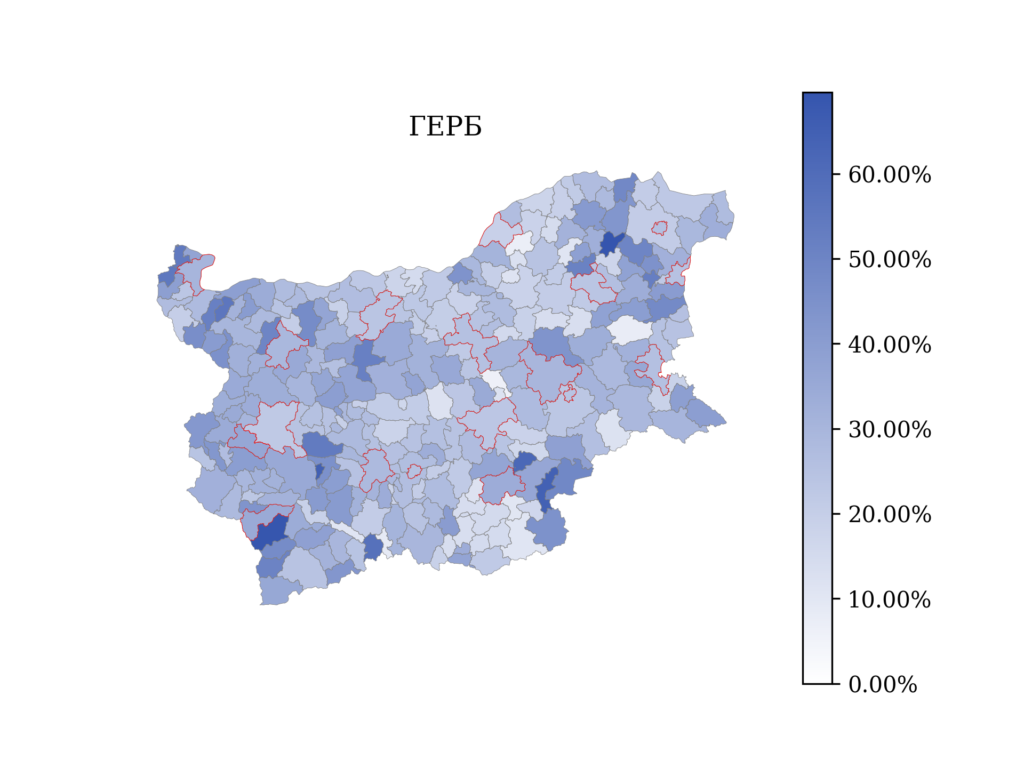
a • GERB vote, April 2021 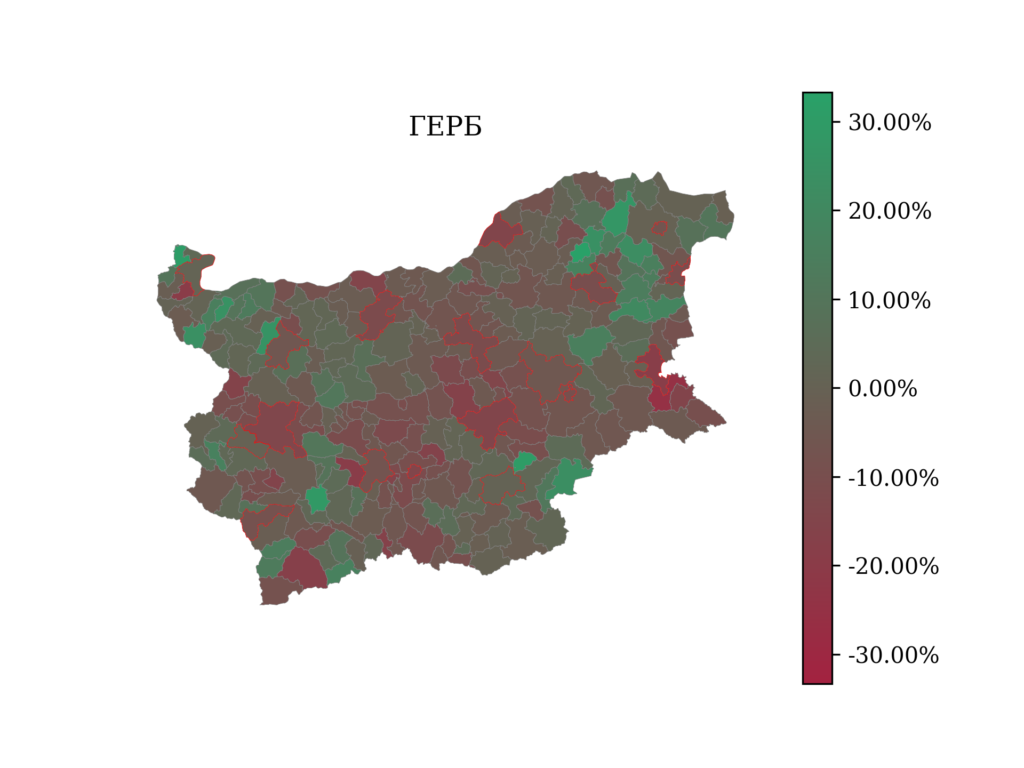
b • Change in GERB vote, 2017-2021, in percentage points 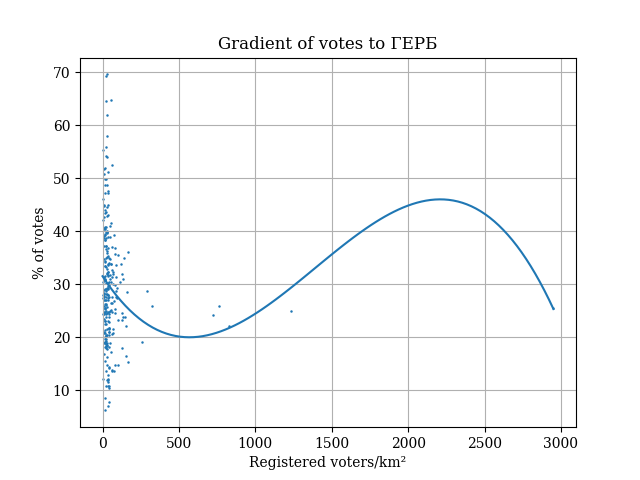
c • Gradient of GERB vote with respect to population density in April 2021, by municipality
ITN (Slavi Trifonov)
Another significant election result was the unexpected second place of ITN. The party was established by the popular TV host and singer Slavi Trifonov in 2019 with no clear ideology. Its program seemed to be limited to the agenda — populist-motivated and most likely harmful for Bulgarian democracy — of a referendum initiated by Trifonov in 2016: for a majority electoral system with absolute majority in two rounds; for compulsory voting; for severe cuts of public party financing (from then 11, now 8 BGN to 1 BGN per vote).
Although almost absent from the official election campaign and campaigning only on Trifonov’s own TV channel and in the social media, the party was successful because of its anti-government and anti-establishment appeal. 565,014 (17.66%) Bulgarian voters supported the party, including the greater part of the protest vote and especially including the younger voters. 30% of the voters between 18 and 30 years old voted for the party. In its first appearance at elections ITN was even able to become the strongest party in some municipalities (“data” panel). Its electoral strongholds have been the district cities and towns and villages (Figure d).
The ITN votes and their share were not surprising. Surprising was the fact that as a second political force in parliament (51 seats, 21.25% of mandates) Trifonov’s party became the only party with realistic chances to form a functioning government coalition. This “kingmaker role” made ITN look as the real election winner.
The socialists of BSP
The next important election result was the extremely poor performance of BSP, which allowed ITN to overtake this party which was considered safe for the second place. During the transition the socialists have experienced sharp ups and downs. However, the 2021 results were a historic low, the worst parliamentary election result in absolute number of votes since 1990. Only 480,146 (15.01%) citizens voted for BSP compared to 955,490 (27.93%) in the previous elections 2017. It has lost one-half of its 2017 voters and dropped for the first time below the line of half a million votes. The BSP parliamentary faction was also almost halved and it will contribute only 43 (80 in 2017) deputies to the new parliament. Former socialist voters didn’t vote or switched preferences to other anti-government parties and coalitions. Estimates show that the party lost about 60 thousand votes to ITN and another 40 thousand to the protest formation “Stand Up! Thugs Out!” (ISMV, independent). The gloomy picture is completed by the results in the individual constituencies and municipalities. In 2021 the BSP was leading in only one of the 31 constituencies; in 2017, it was the strongest party in seven. The comparison between the results of these two elections shows that BSP has now lost its leading role in a large number of municipalities (“data” panel, Figure e). Most of its voters are concentrated in the small and medium-sized towns (Figure e, right).
There are various reasons for the poor performance of the one-largest Bulgarian party, including serious political mistakes of the party leadership that have unsettled and demobilized many party supporters.
Other parties
The fourth largest party in the national Assembly is the Movement for Rights and Freedoms (DPS, RE), the longstanding representative of the citizens with Turkish ethnicity. This specific of the party is the reason of the territorial concentration of its electorate, covering the areas of residence of this ethnic group (“data” panel, Figure f). Traditionally it keeps its strongholds in the smaller settlements (Figure f, right).
This time DPS was not able to maintain its traditional position as the third strongest force in parliament, although its results were somewhat better than in 2017. With its 336,306 voters DPS got 10.51% of the vote, little more than in 2017 (9.24%, 315,976 voters), but a big step back from its much better result of 14.84% (487,134 voters) in 2014. This configuration is repeated in the number of seats: 30 in 2021 and 26 in 2017, but 38 in 2014. The increase in votes and number of deputies in 2021 seems minimal, given that in these elections DPS remained a monopolist in its specific constituencies. In 2017 it had a serious competitor in the face of DOST party of the former DPS chairman Mestan, which received 100,479 votes (2.94%).
The fifth strongest formation in parliament is Democratic Bulgaria (DB), a center-right coalition between the party Yes Bulgaria of former Justice minister Hristo Ivanov; the party Democrats for Strong Bulgaria (DSB), founded by former PM Ivan Kostov; and the ecological Green Movement (ZD). With regard to affiliation with EP political groups the picture is ambivalent: Yes Bulgaria is not affiliated yet, DSB is EPP member, and ZD is a member of the Greens. The distribution of seats is as follows: Yes Bulgaria (independent) — 13; DSB (EPP) — 8; Green Movement — 4 (Greens/EFA); citizen quota (independent) — 2. Generally, DB is considered to represent the so-called traditional right which was once gathered in the big umbrella party Union of Democratic Forces (SDS). In 2017 three quarreling right parties ran on their own in the elections but each reached less than four percent of the vote and all remained outside parliament. In the 2021 elections, it was the new coalition DB that embodied this political tradition. As an extra-parliamentary opposition hostile to GERB and Borissov’s government DB was one of the driving forces in the protests last summer.
DB received 302,280 votes (9.45%) and 27 seats in parliament — a slightly better result than the votes and seats won by a similar coalition (Reform bloc) in 2014. The most remarkable achievement of the formation was the best result in the capital Sofia. However, DB still has problems to reach the other parts of the country and remains more or less a “Sofia party” (Figure g).
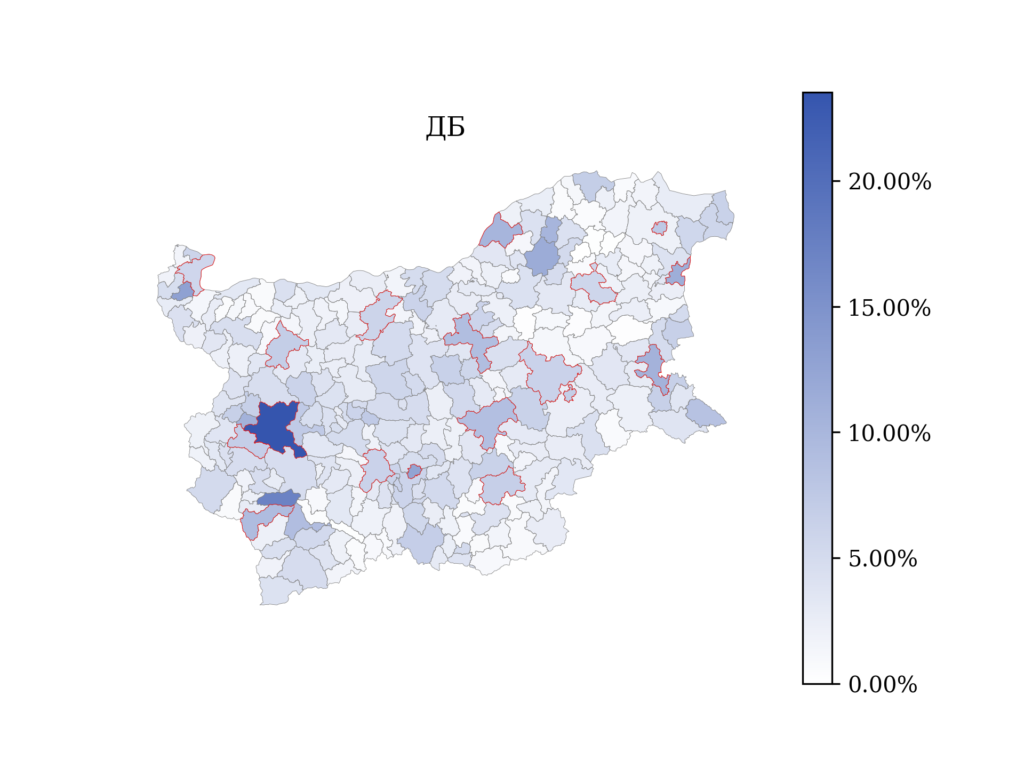
The last party that entered parliament was another protest movement, ISMV. It is an alliance between some of the protest leaders and the former ombudsman Maya Manolova. Formally, ISMV is an electoral coalition formed by three small parties. It is considered to be center-left oriented although one of the backing parties is EPP member. 150,949 votes (4.72%) were cast for this coalition and it has 14 MPs.
Conclusion
The election results showed, above all, that the majority of Bulgarian voters wanted change. The government backing has changed since 2017 and there is an obvious decline of this support in most parts of the country. GERB is still the largest force, but entirely isolated and unable to form a cabinet. Three of the parliamentary parties are newcomers and their success is linked to the summer anti-government protests. BSP has always been an opponent to Borissov’s party. DPS, though supporting GERB when needed during the former legislature, now verbally declared its readiness to support the protest parties. In this way, a dividing line between GERB and all other parliamentary parties is formed.
At the same time, there is a second dividing line, which significantly complicates the situation and the country’s prospects after the elections. It is the dividing line between the so called “parties of the status quo” (this includes the “old” parliamentary parties GERB, BSP and DPS) and the new “parties of change.” However, the latter have only 92 seats in parliament and are far away from the required 120+1 majority. Their reluctance even to talk to others (and to secure or even to accept parliamentary support at least by the BSP) made it extremely difficult to form a government.
The prevalence of the second dividing line over the first one became clear when the three attempts provided by the constitution to form a cabinet failed. The inability to form a majority and a government by a newly elected parliament occurred for the first time since the beginning of democratic change. President Radev had to dissolve parliament, appoint a caretaker government, and schedule new elections. Early elections were held on July 11. This is an unprecedented situation in Bulgarian political life. Bulgarian politics is entering unexplored territories.
Bibliography
Alpha Research (2021, March). Public attitudes at the End of the Campaign. Online.
DG EMPL (2020). Employment and Social developments in Europe. Leaving No One Behind and Striving for More: Fairness and Solidarity in the European Social Market Economy. Annual review, Directorate-General for Employment, Social Affairs and Inclusion, Directorate A, Luxembourg : Publications Office of the Eurepean Union, pp. 31-50.
Transparency International (2020). Corruption perception index. Online.
The Data
citer l'article
Dobrin Kanev, Parliamentary Election in Bulgaria, 4 April 2021, Sep 2021, 61-66.
à lire dans cette issue
voir toute la revue






